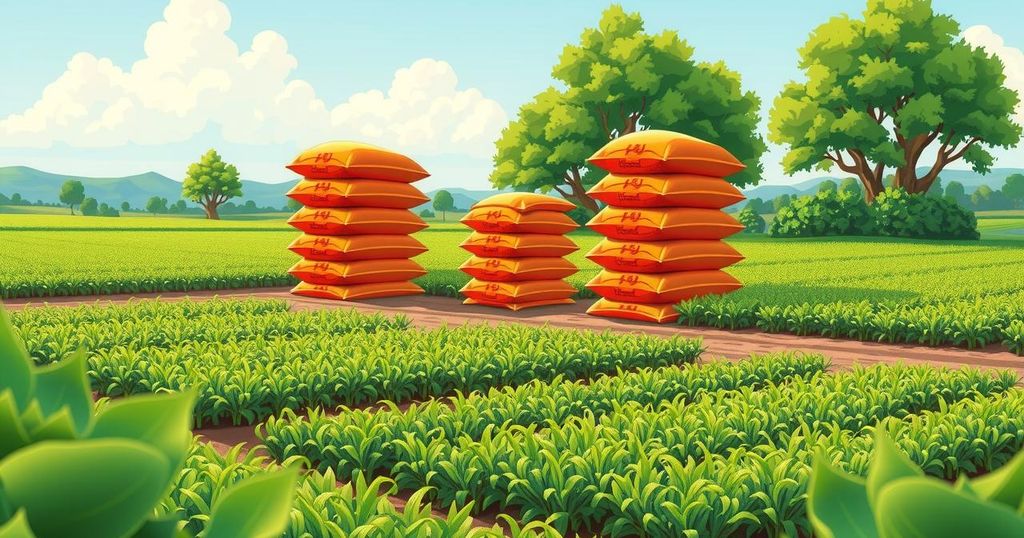Brazil’s fertilizer imports are experiencing notable growth due to favorable exchange rates between grains and fertilizers, prompting producers to purchase a significant volume of inputs ahead of the 2025/26 crop season. Strategies are adapting to fluctuating prices, with expectations of continued imports, especially of monoammonium phosphate and single superphosphate.
Brazil’s fertilizer imports have surged, displaying growth levels not seen since 2022, when the global market faced disruption following Russia’s invasion of Ukraine which inflated prices. The advantageous exchange ratio between grains and fertilizers has encouraged producers to capitalize on this situation, leading to increased imports.
According to a recent Rabobank survey, producers have already purchased 18% of the fertilizer volume anticipated for the 2025/26 crop season between November 2024 and January 2025, dramatically higher than the 8% recorded during the same timeframe in the previous cycle. Notably, in January alone, acquisitions reached 7% of the projected volume for the season, an increase from 5% in the same month of the previous year.
Bruno Fonseca, an input analyst at the Dutch agribusiness bank, noted, “At the end of last year, sales of potassium chloride rose sharply because prices were very attractive, and there were expectations of a slight increase. For other nutrients, such as phosphorus, it was not worth purchasing in advance due to high prices, and that trend is expected to persist for some time.”
Argus, a consulting firm, reported a significant rise in imports of monoammonium phosphate (MAP), essential for crops such as soybean, corn, and wheat. In January, Brazil imported 283,300 tonnes of MAP, almost doubling the 144,100 tonnes imported in January 2024.
The firm anticipates that import volumes will continue to increase, albeit in a more strategic manner, contingent upon favorable input prices to mitigate exchange rate impacts. Predictions indicate a potential rise in imports of single superphosphate (SSP) as a cost-effective alternative to MAP, with imports likely to increase by 18% to 23% in the upcoming months due to a more favorable exchange ratio.
Luiz Pedro Bier, vice president of Aprosoja Mato Grosso, reported that producers are promptly securing prices for the 2025/26 soybean crop, taking advantage of the dollar’s exchange rate. Though soybean prices are declining on the Chicago Board of Trade, Mr. Bier emphasized, “A strong dollar means slightly higher revenues from grain exports, but it also significantly raises input costs.”
Industry experts state that producers are diligently seeking optimal purchasing conditions, with cooperatives employing aggressive strategies to offer attractive fertilizer sales ahead of the second crop planting season. Input retailers’ restocking is expected to hinge on a reduction in the dollar’s exchange rate.
Experts concur that high phosphate costs and tight margins are predicted to remain a challenge throughout 2025, impacting financial strategies across the supply chain.
In conclusion, Brazil is witnessing a significant increase in fertilizer imports driven by favorable exchange conditions, with producers rapidly securing inputs in anticipation of upcoming crop seasons. The heightened purchasing activity, particularly for potassium chloride and monoammonium phosphate, reflects proactive measures by producers to navigate fluctuating prices. However, challenges such as persistent high phosphate costs and tight profit margins are anticipated to influence the industry’s financial planning in the coming year.
Original Source: valorinternational.globo.com




